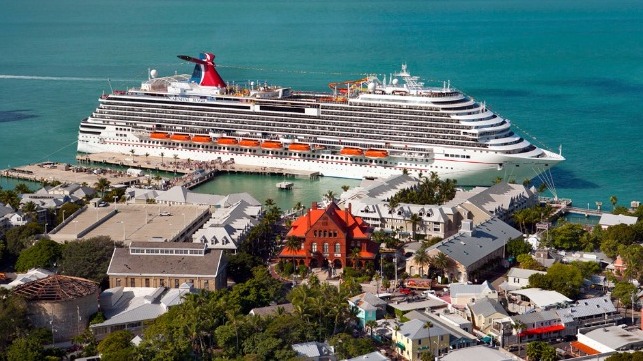Last-Minute Compromise Blocks Key West Cruise Ban and Local Port Rules

In a surprise last-minute maneuver, Florida lawmakers revived and passed the legislation to prohibit the state’s municipally-operated seaports from making local rules restricting vessels from their ports. After reaching a compromise that reverted to the original, broader format of the legislation, it passed both the Florida Senate and later the House and is on its way to Governor Ron DeSantis who is expected to sign the larger transportation bill into state law.
The proposed port legislation hit a roadblock at the beginning of the week in Florida’s House when representatives had proposed further amendments to the draft bill that had previously passed the state senate. Saying time had run out in this session to resolve their differences, the bill had been withdrawn and pronounced dead while the sponsor made comments that nothing was final until the legislative session closes at the end of the week.
Yesterday, State Senator Ed Hooper, representing Clearwater, who was sponsoring a broader state transportation bill that addressed issues including roads, and Senator Jim Boyd, of Bradenton who sponsored the stand-alone port legislation, reached a compromise with the House that permitted the port legislation to be added into the broader bill. The transportation bill passed both houses of the legislature last evening meaning that it now only requires the governor’s signature.

that matters most
Get the latest maritime news delivered to your inbox daily.
As a further surprise, the compromise permitted the port amendment to revert to its original scope blocking 15 municipally run ports in Florida from making restrictions based on the type, size, or point of origin of a vessel. Also, it prohibits regulations related to passengers and crew ranging from the number or capacity to nationality. Further, it incorporates language to also block restrictions based on a vessel or line’s health or environmental records. The compromise also maintained the common practice in Florida of making such state laws preemptive to remove any existing local restrictions that go against the new law.
While the bill was largely viewed as an attack on the referendums passed last November by Key West voters, it could also impact other state ports not only with passenger operations but other types of commercial vessels. The amendment, if the broader transportation bill becomes law, however effectively repeals the three referendums in Key West that limited the size of cruise ships, the number of passengers and crew that could come ashore each day, and gave preference to lines with the best environmental record.
